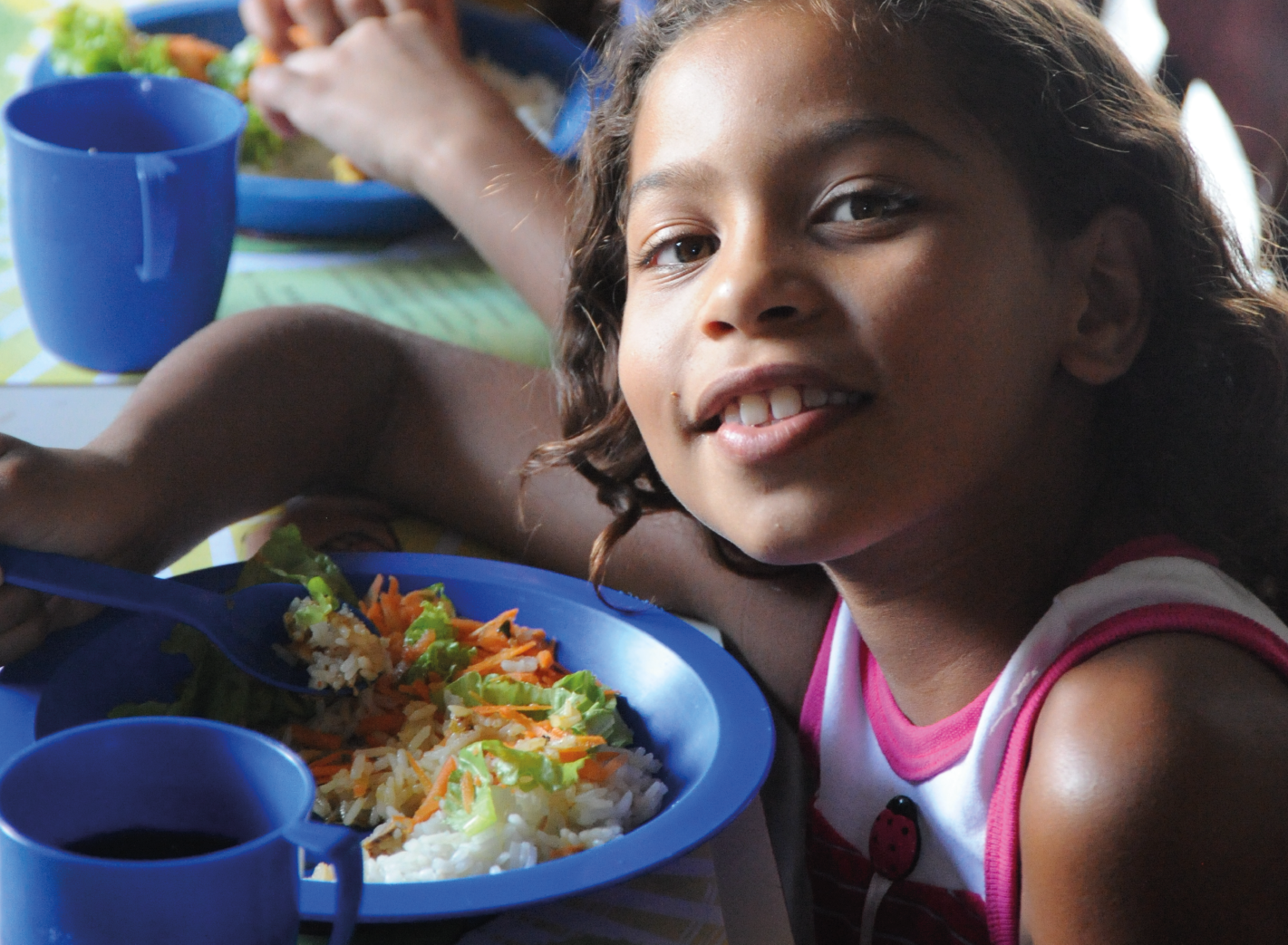
Malnutrition, in all its forms, has already been understood and addressed as a public health issue, but the emerging reality indicates that the combination of malnutrition and obesity, known as the multiple burden of malnutrition, demands equal attention. This coexistence of micronutrient deficiencies and malnutrition combined with overweight and obesity in the same population has been striking nations in the global South with unprecedent speed. Necessary actions that address both dimensions simultaneously are a must for countries to implement effective health public policies.
Taking this into account, the WFP Centre of Excellence against Hunger Brazil, the Brazilian Cooperation Agency and the Ministry of Health, through the Food and Nutrition Coordination of the Department of Health Promotion, launched a South-South Cooperation project named Nurture the Future in 2020. The initiative has been supporting processes to strengthen national public institutions and health and nutrition sectors considered fundamental for the management of public food and nutrition policies on the multiple burden of malnutrition in Brazil, Colombia, and Peru.
An article recently published by The Economist described how the COVID-19 pandemic left scars on children’s nutrition habits that will hinder their lives, if immediate actions are not taken. It explores how obese children will outnumber the underweight for the first time, and different from what most people think, many of the overweight kids live in Asia and Africa. It also refers to a 2017 study by Lancet, which projected that if the trends seen at the time continued, by 2022 obesity in children and adolescents aged 5-19 years would surpass the share who were underweight for the first time.
To tackle this global health challenge, the Nurture the Future project team published two policy briefs that highlight key actions that policy makers ought to take for putting the health of children back on track, which in turn will bring economic, social and health gains to humanity. The first policy brief presents information to contribute to the development of strategies by public managers at the local level (municipal and state managers) for the prevention and care of childhood obesity. The document consists of six questions and objective answers to facilitate understanding on a topic so sensitive that it can change the reality of cities. The second publication highlights experiences from Brazil, Colombia, and Peru and outlines some simple steps for governments to take on the prevention and care of obesity.
The Nurture the Future project emphasizes that a set of intersectoral measures and programmes is necessary to improve the nutritional and food profile of populations and the only way forward is through collaborative efforts. To learn more and find out how you can contribute to this project, please visit the project page and contact us.




